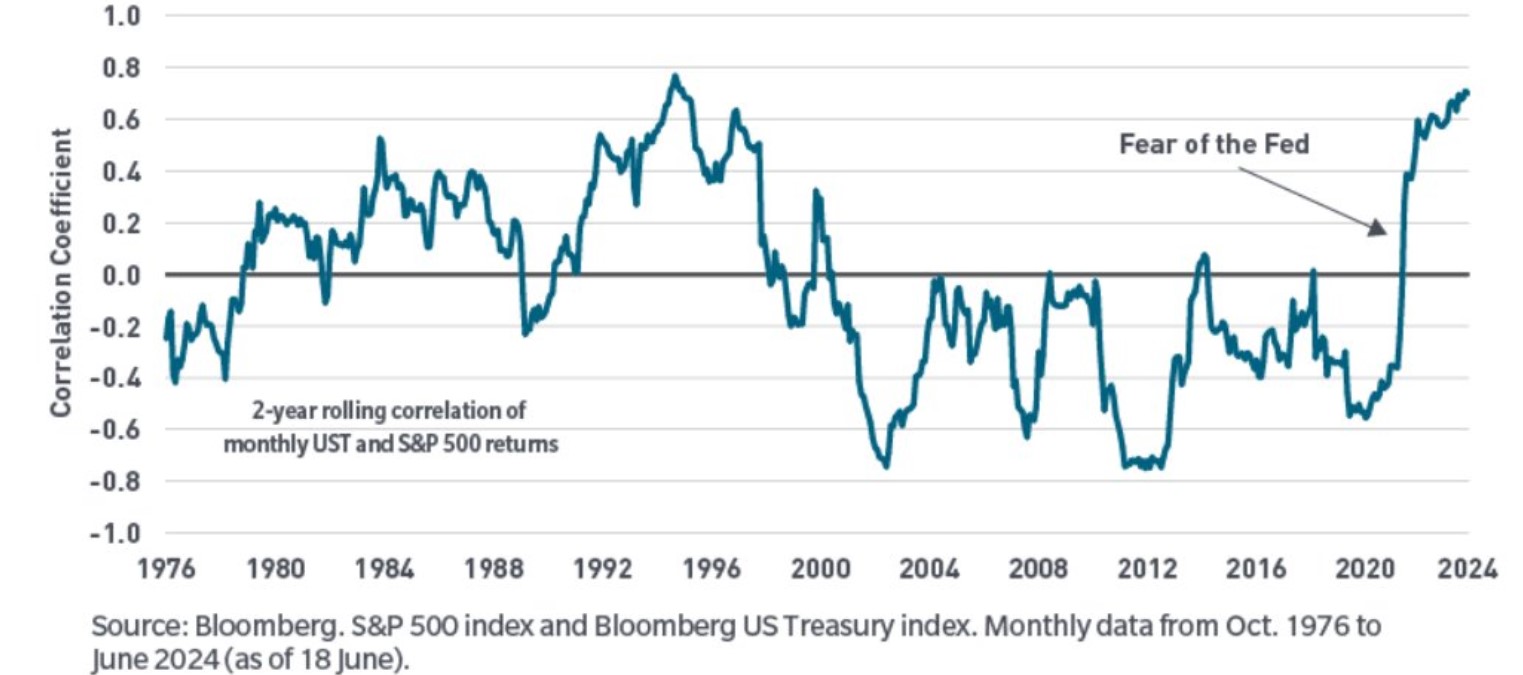
FedWatch Index
Fed language has evolved over the years. In the days of Alan Greenspan, nothing was notoriously said, with only official communication through minor FOMC statements and Humprey Hawkins’s testimonies. The size of Greenspan’s briefcase was often gauged to determine if the Fed would make a next move. In the 1980s, Fed watching was even more of a pulsing exercise by gleaning weekly M2 data.
In today’s environment, “Fed speak” dominates the headlines and significantly influences sentiment, asset allocation and trading decisions, volatility, and market liquidity.
Fed Watch Advisors created a “Fed Index” to filter the noise of Fed speakers, market commentaries, and other FOMC headlines. As the graph shows, an index filtered for market-relevant news about the Fed correlates with expectations for Fed policy.
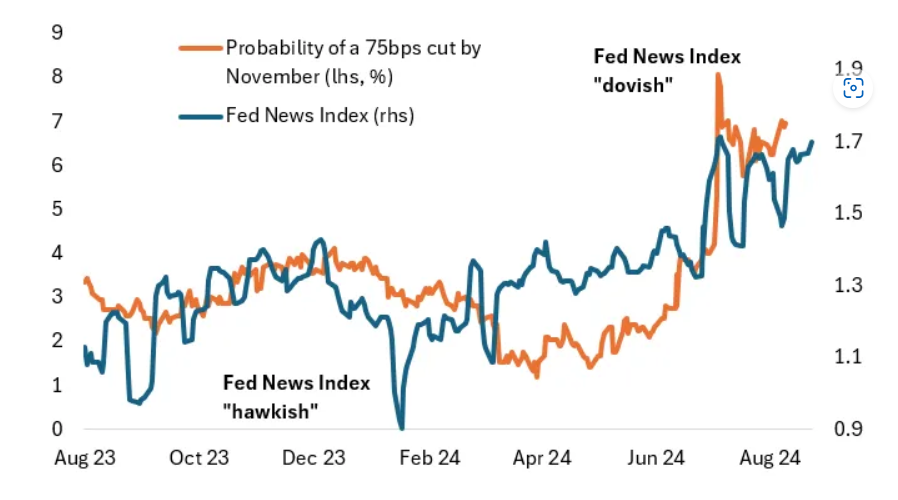
The text-based analysis creates a “score” based on Fed headlines and news to determine whether the tone of a particular speech, interview, and meeting was “dovish” (i.e., favorable towards easing policy) or ‘hawkish” (i.e., bias to tighten).
The granularity of being dovish or hawkish is driven by specific data (e.g., payrolls and PCE), the volatility of markets affecting financial conditions, and what is happening globally.
Fed Watch Advisors created sub-indices to filter for granularity in the Fed speak and oscillate those with Relative Strength Indicators of benchmark stock indices.
For example, when the Fed stopped tightening in the summer of 2023 and shifted towards easing in the summer of 2024 shows that the sub-index moved from 0.3 closer to 0.7, in line with the RSI average for the S&P, Nasdaq, and Russell.
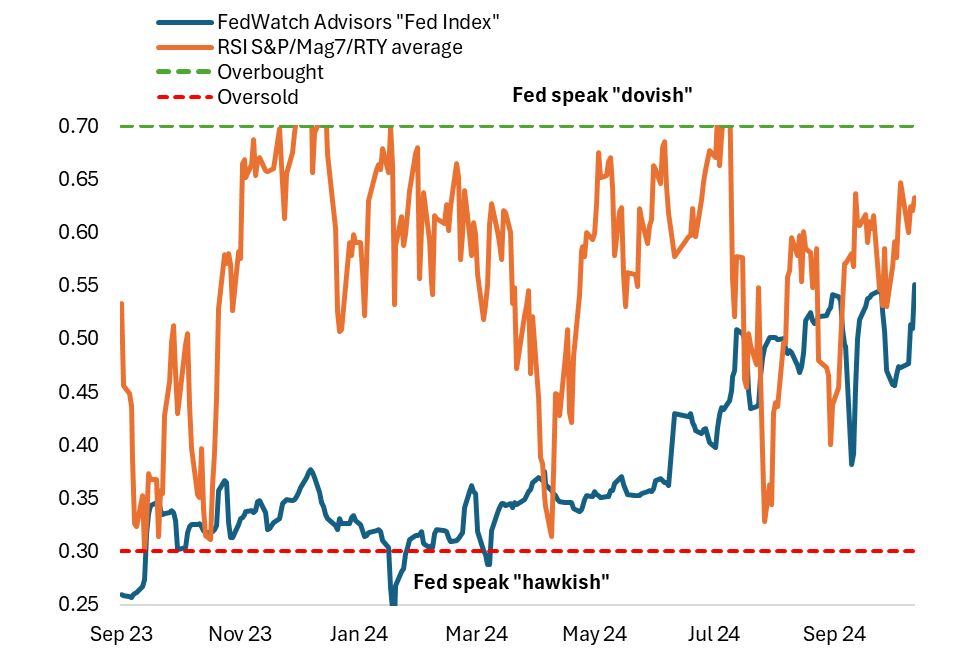
The Fed Index has other attributes. Its composition comprises stock, bond, commodity, and currency correlations with Fed headlines, news, and speeches. Scoring hawkish and dovish can optimize the weightings between assets in a portfolio.
By adjusting the weightings of stocks and bonds based on the Fed Index’s scoring of Fed sentiment, the traditional 60-40 portfolio changes in construct. Historically, equities’ weighting declined, and bonds increased (see chart).
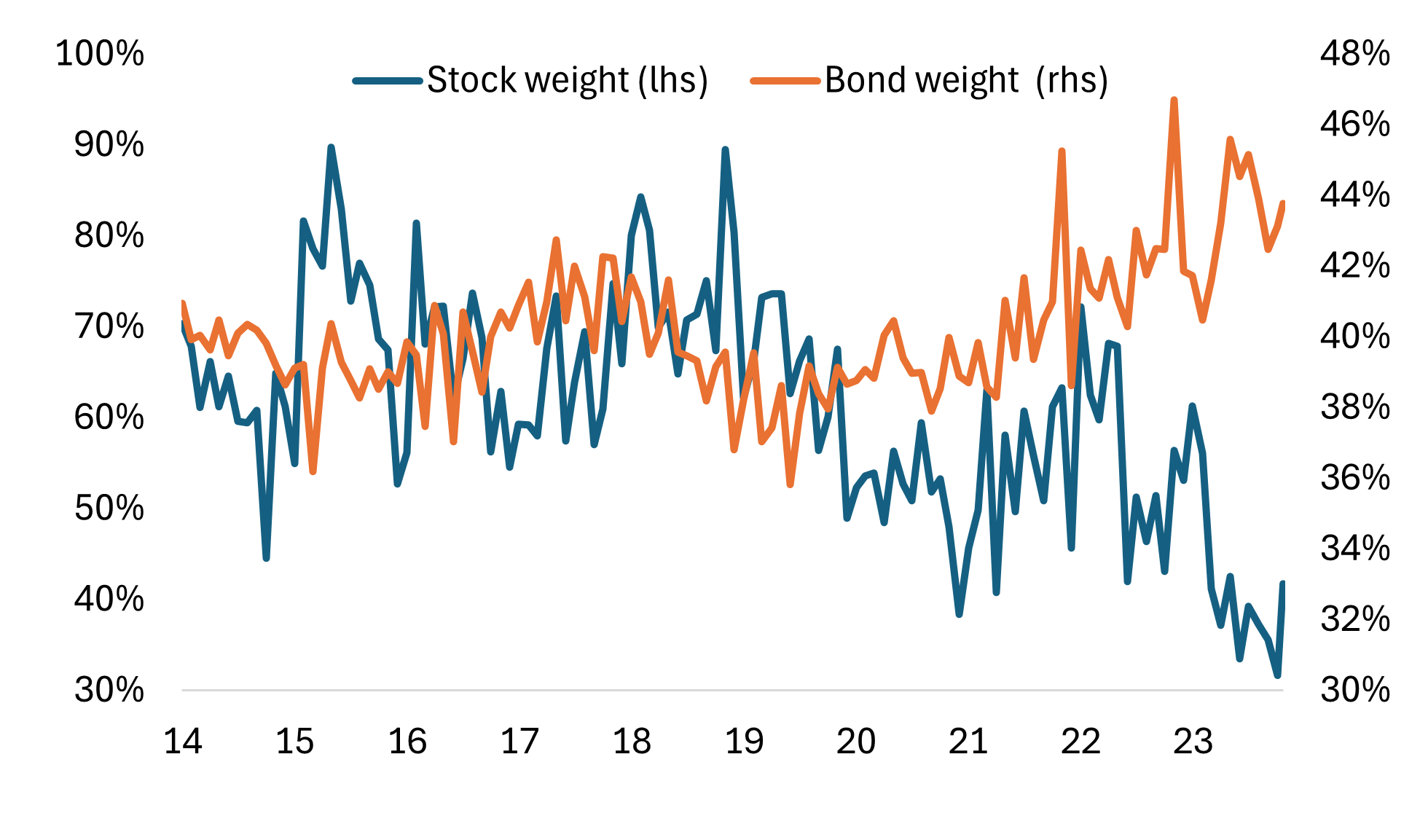
While this weighting profile would significantly detract from cumulative total return had an investor following the standard 60-40 weighting, the performance of the Fed Index-based portfolio was not necessarily negatively affected.
Instead, the Sharpe Ratio of the Fed Index portfolio has been, on average, higher than that of the 60-40 portfolio owing to lower portfolio volatility.
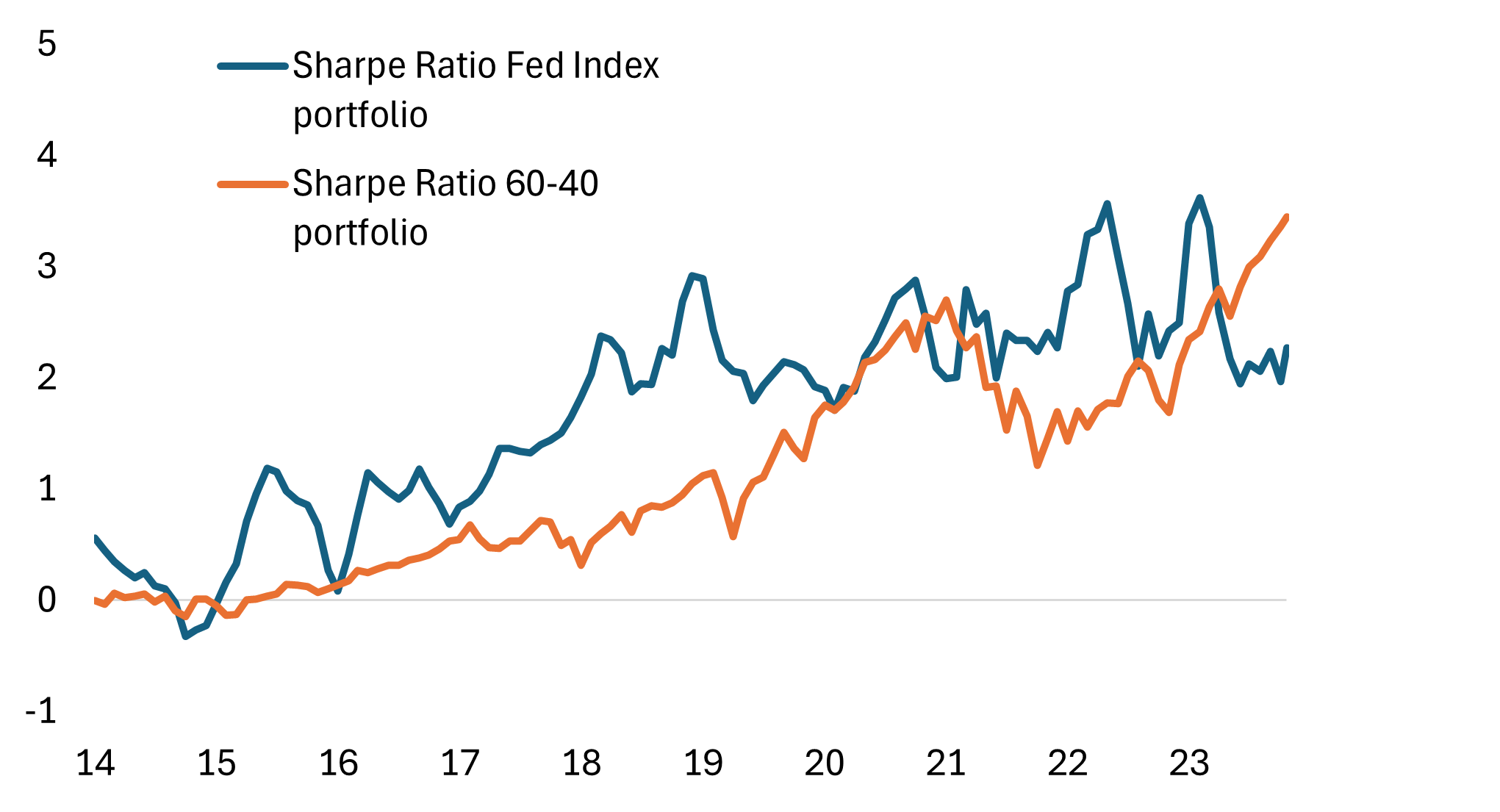
Market forces such as liquidity, volatility, positioning, and supply impact bond yields and, mathematically, duration. Investor sentiment around the Fed, communications, and policy action affects yields substantially more.
For those reasons, the level of yields is strongly related to the direction of the Fed Index.
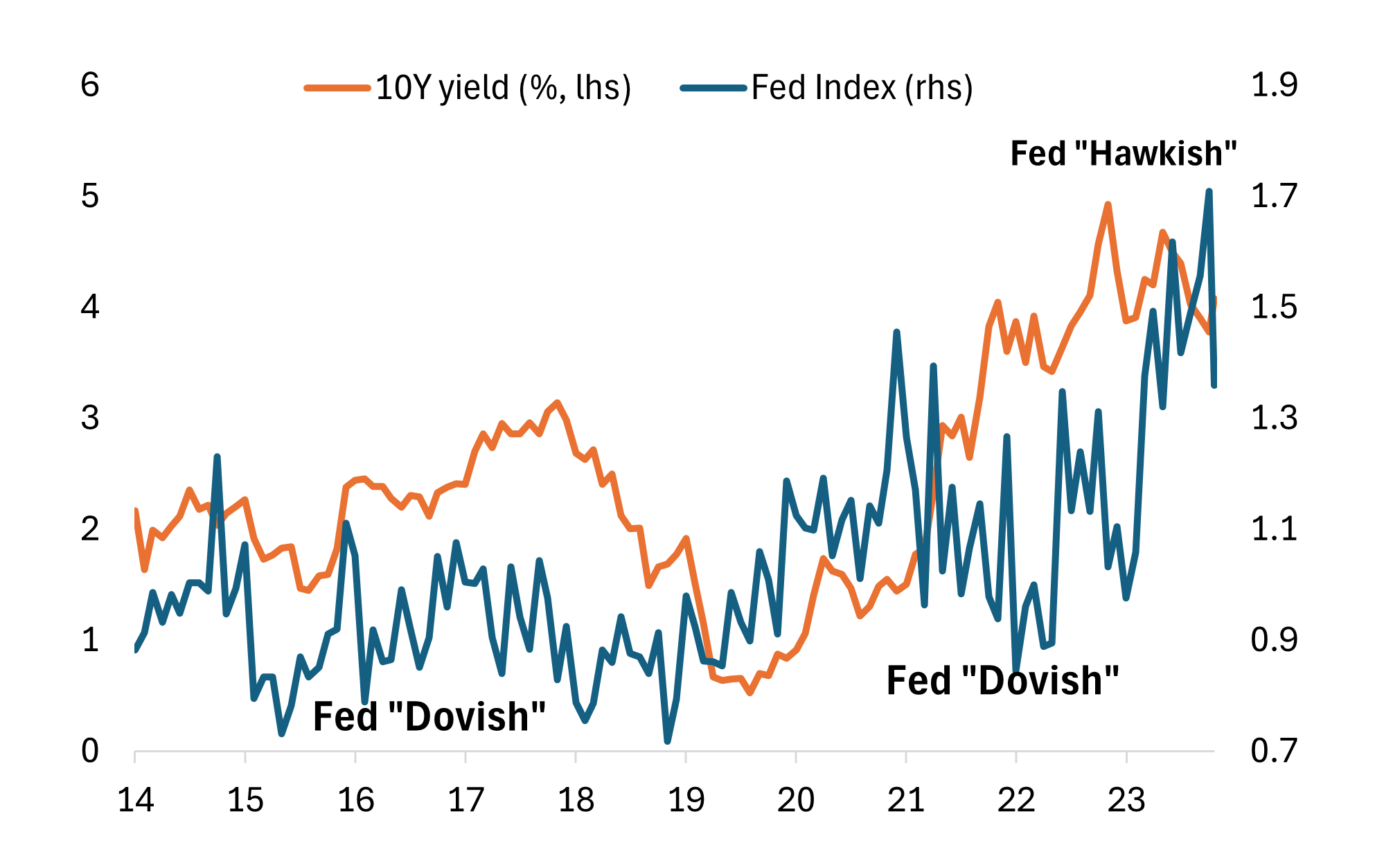
Currently, stock and bond markets lack diversification. For example, the positive correlation between bonds and stocks is historic and driven by an aggressive normalization of interest rates.
The problem for investors is that a positive stock-bond correlation has removed an “anchor” that naturally lowered portfolio volatility. Thus, bonds need diversification more than stocks despite the Mag7 concentration problem in the equity market.
The Fed drives interest rates and expectations, and the Fed Watch index filter plays a vital role in diversification in stock-bond allocations.
